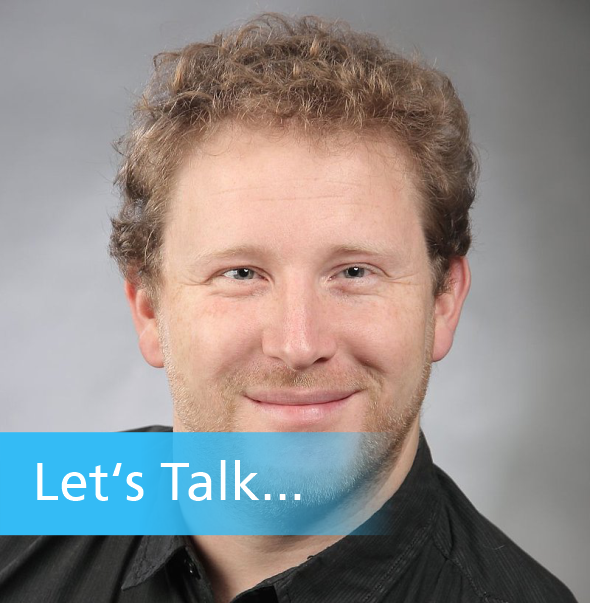
In our interview series in each newsletter, we introduce you to a member of the Fraunhofer-Business Area Cleaning in more detail. This time Daniel Weile from the Fraunhofer Institute for Organic Electronics, Electron Beam and Plasma Technology FEP answered our questions. Read more about her career and her personal perspective on the goals, potential and wishes for the Fraunhofer Business Area Cleaning.
1. How did you join Fraunhofer-Business Area Cleaning?
In 2020, I came to the Fraunhofer Area Cleaning, specifically to the office at Fraunhofer FEP, as part of the CLOU project - Development of a training course to become a "Certified Professional Specialist for Industrial Parts Cleaning". Here I deal with the basics of cleaning technology and specifically with the development, conception and implementation of a new type of further training in the field of industrial parts cleaning
Cleaning according to the principle of "we've always done it this way" wastes resources, time and personnel unnecessarily. Up-to-date cleaning accelerates the process, reduces effort and ensures product quality. The best way to close this gap is to tap into and use specific knowledge about cleaning in general and your own process in particular.
4. What does the Fraunhofer FEP offer in cleaning technology?
Our work is based on two main pillars: training and technology consulting. In the area of advanced training, we offer two products: a basic seminar (with essential basics of cleaning technology over 4 days) and a part-time training course to become a certified professional specialist for industrial parts cleaning over a training period of just under a year. In the course of our consulting work, we help companies and institutions across industries with all questions relating to technical cleanliness. This includes activities ranging from the assessment of cleaning processes and technology development to the conceptual design of plants and productions.
5. What makes you a competent partner in cleaning technology?
I've been working in industrial component cleaning for about 3 years now and I'm still learning something new every day. The unbelievable variety of questions, applications and existing solutions with all their variants fascinates and inspires me again and again. My basic training as a chemist often allows for alternative perspectives on important aspects of parts cleaning in an otherwise rather technically focused industry. Through my work in the apprenticeship, I gain insights into many different areas of parts cleaning and thus have a very good overview.
6. What do you wish for the industry?
More visibility: "Cleaning is not everything, but without cleaning everything is nothing". Cleaning takes place everywhere, but most of the time it does not receive the necessary attention and appreciation. And this is completely unjustified. No other topic offers as many variations and possibilities, industries and processes as cleaning technology.
7. What is urgently needed so that the next big step can be taken in the field of cleaning technology?
The most important step for the future would be a rethink towards "cleaning-friendly design". In other words, the awareness of all those involved that cleaning steps are absolutely necessary and that not all contamination can be removed retrospectively. This should already be taken into account in the design so that "impossible to clean areas" (undercuts, narrow and deep drill holes, internal burrs.....) can be prevented from the outset. To do this, however, the image of "simply rinsing the components" must first be changed in the minds of all those involved to a contemporary perception of the complexity and difficulty of industrial cleaning.
 Fraunhofer-Business Area Cleaning
Fraunhofer-Business Area Cleaning